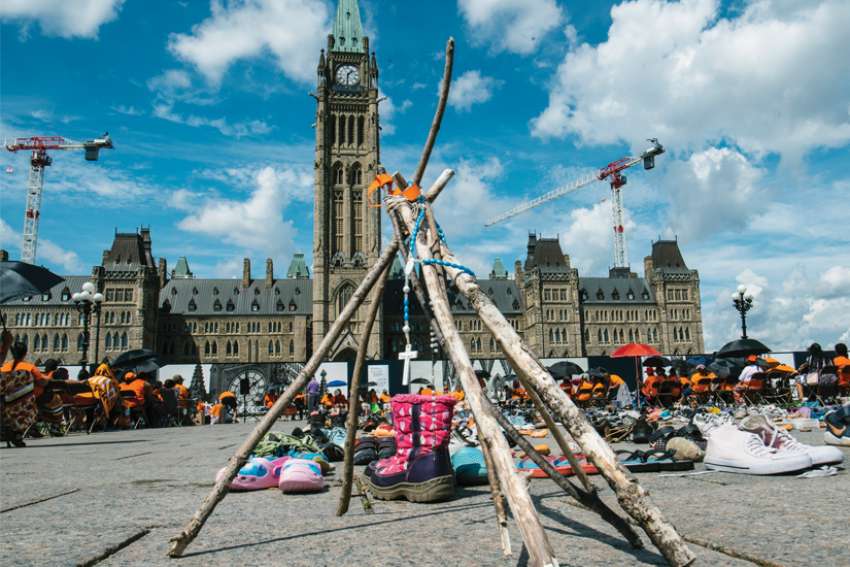Repairing that relationship is imperative if there is to be real reconciliation with Canada’s First Peoples, all candidates who took part in the Sept. 1 online election forum agreed.
The online forum, titled “A Faithful Election Conversation 2021” will be available on YouTube until the election so that Canadians can see how the main political parties in English Canada address issues such as reconciliation with Indigenous communities, climate justice, poverty and inequality and racism and religious freedom from a faith perspective, said John Milloy, director for the Centre for Public Ethics at Ontario’s Martin Luther University College.
Milloy, a former Ontario provincial Liberal cabinet minister and author of Politics and Faith in a Polarized World, A Challenge for Catholics, said “our goals were to elevate our political discourse, focus the conversation on issues of public concern, and create a resource for citizens to use over the coming days as they engage in deliberation about the upcoming vote.”
The forum was a joint venture of the Martin Luther University’s Centre for Public Ethics, the Baha’i Community of Canada, the faith-based Citizens for Public Justice and the Catholic Centre Oblat – A Voice for Justice.
While there are differences on how best to address the relationship with Canada’s Indigenous communities going forward, none of the party representatives and the candidates from the Liberal, Conservative, NDP and Green parties disputed that the relationship with Canada’s Indigenous communities has been “toxic” and must change.
“We are in an environment of reckoning that has been delayed for years,” said Liberal MP and federal election candidate John McKay. “This toxic relationship needs to be addressed.”
The other candidates who took part in the forum that considered election issues from a faith-based perspective — the Green Party’s BC MP Elizabeth May and Conservative Alberta MP Garnett Genuis, who are both on the executive of the recently formed federal all-party interfaith caucus, Liberal Mackay and the NDP’s Charlie Angus — agree on the need for fundamental change in the relationship between the country as a whole and Canada’s Indigenous communities.
“We don’t have a problem of good intentions,” said Genuis, adding that all mainstream Canadian political parties recognize the need for reconciliation and change.
“Where we differ is on the solutions and how to move forward,” Genuis said, adding that for his party, key to fostering a better relationship with Canada’s First Peoples is through “economic development and self-determination” something he said can not be a one-size fits all solution but rather may take on different forms.
The NDP’s Angus, a Catholic who has been an outspoken critic of the Church’s role in the operation of federally created residential schools, added that reconciliation with Canada’s Indigenous peoples must include a reckoning by the Church as well.
“There can not be reconciliation without justice,” Angus said.
“The Church doesn’t get to talk about reconciliation when it still refuses to apologize,” he said, referring to the fact that an official formal apology from the Vatican and the Catholic Church in Canada over its role in Canada’s residential school system has never been issued.
Assembly of First Nations (AFN) National Chief RoseAnne Archibald is encouraged by the continuing discussion of Indigenous issues in this campaign, much of it ignited by the discovery of unmarked graves at former residential schools.
“According to our internal polling, the Canadian electorate is more engaged and supportive of our priorities than ever before,” Archibald said during an AFN press conference last month. “I commit to working with all parties after the election to ensure that Canada does all it can to support healing and justice for our children.”


